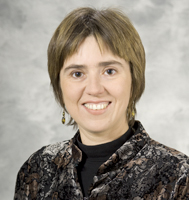
Aleksandra Zgierska, MD, PhD
MADISON- A variety of health, law enforcement, law, public health and public policy professionals and patient advocates will gather in Madison to discuss reducing the impacts of opioid and other addictive disorders in Wisconsin. The conference, sponsored by the Wisconsin Society of Addiction Medicine, the UW School of Medicine and Public Health Department of Family Medicine and Community Health, St. Mary’s Hospital and the American Board of Addiction Medicine will be held at the Pyle Center on September 29 and 30.
In addition, two post-conference workshops, one on safe and competent management of opioid therapy in chronic pain and another on the treatment of opioid addiction with buprenorphine, will take place on Saturday, October 1.The Drug Abuse Treatment Act of 2000 requires training for physicians to receive waivers to use buprenorphine to treat patients with opioid-use disorders.
“Opioid abuse and overdose deaths have become an epidemic in Wisconsin,” said Dr. Aleksandra Zgierska, assistant professor of family medicine and community health and president of the Wisconsin Society of Addiction Medicine, a state chapter of the American Society of Addiction Medicine. “This conference will offer education and multidisciplinary perspectives on the prevention and treatment of the opioid crisis.”
Among topics to be discussed at the conference are the scope of substance misuse in Wisconsin, newer and emerging drugs of abuse, mental health problems that co-exist with substance use disorders, legal considerations when treating pregnant women with alcohol or drug problems, and a state perspective on opioid abuse from state Representative John Nygren. His daughter is in recovery from a heroin addiction. Nygren will speak at 1:15 p.m. on Thursday, September 29.
Zgierska said a number of professionals are expected to attend including physicians, physician assistants, nurse practitioners, nurses, pharmacists, psychologists, social workers, mental health and substance abuse counselors, law enforcement and public health specialists.
“Clinicians and other professionals involved in improving care of people with addictive disorders need to be aware of new trends in the field to implement effective strategies to prevent and treat them,” said Zgierska.
For more information on the conference, go to http://www.fammed.wisc.edu/wisam-conference/ .
Published: September 2016
